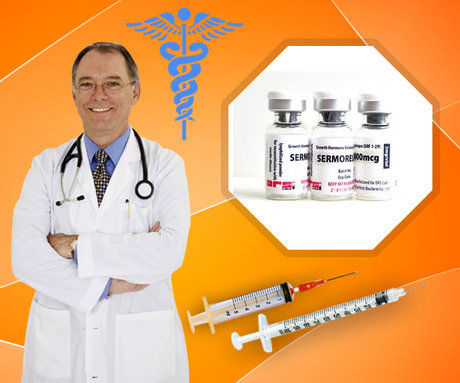Introduction to Tamoxifen
Tamoxifen, a selective estrogen receptor modulator (SERM), has been a cornerstone in the treatment and prevention of hormone receptor-positive breast cancer in women. Its mechanism of action involves competitively binding to estrogen receptors, thereby inhibiting the proliferative effects of estrogen in breast tissue. However, the impact of tamoxifen extends beyond its primary therapeutic target, influencing various aspects of the female reproductive system, including ovarian function.
Tamoxifen's Mechanism of Action on Ovarian Function
Tamoxifen's interaction with the ovaries is complex and multifaceted. While it acts as an antagonist in breast tissue, it exhibits agonist properties in other tissues, including the endometrium and, to a certain extent, the ovaries. This dual nature of tamoxifen can lead to varied effects on ovarian function, ranging from ovulation induction to ovarian suppression.
In premenopausal women, tamoxifen can stimulate the hypothalamic-pituitary-ovarian axis, leading to increased levels of follicle-stimulating hormone (FSH) and luteinizing hormone (LH). This stimulation can result in the development of ovarian cysts and, in some cases, the induction of ovulation. Conversely, long-term use of tamoxifen has been associated with a decline in ovarian reserve, as evidenced by reduced anti-Müllerian hormone (AMH) levels, a marker of ovarian function.
Clinical Implications of Tamoxifen on Fertility
The impact of tamoxifen on fertility is a critical consideration for premenopausal women undergoing treatment. While some women may experience improved fertility due to the ovulation-inducing effects of tamoxifen, others may face challenges due to the drug's potential to reduce ovarian reserve over time. This dichotomy underscores the importance of individualized fertility counseling and monitoring for women on tamoxifen therapy.
For women who wish to preserve their fertility, options such as ovarian stimulation and oocyte cryopreservation should be discussed prior to initiating tamoxifen treatment. Additionally, regular monitoring of ovarian function through hormone levels and ultrasound assessments can help guide clinical decision-making and optimize fertility outcomes.
Tamoxifen and Menopausal Symptoms
Another significant aspect of tamoxifen's impact on ovarian function is its association with menopausal symptoms. As tamoxifen can disrupt the normal hormonal balance, women may experience symptoms such as hot flashes, vaginal dryness, and mood changes. These symptoms can significantly affect quality of life and may require additional management strategies, such as hormone replacement therapy or non-hormonal treatments.
Long-term Ovarian Health and Tamoxifen
The long-term effects of tamoxifen on ovarian health remain an area of ongoing research. Some studies suggest that tamoxifen may increase the risk of ovarian cysts and, in rare cases, ovarian cancer. However, the overall risk of these adverse events appears to be low, and the benefits of tamoxifen in reducing breast cancer recurrence and mortality often outweigh these potential risks.
Conclusion: Navigating Tamoxifen's Impact on Ovarian Function
In conclusion, tamoxifen's impact on ovarian function is a complex interplay of its agonist and antagonist properties. While it can stimulate the ovaries in the short term, long-term use may lead to a decline in ovarian reserve. Clinicians must carefully consider these effects when prescribing tamoxifen to premenopausal women, ensuring that patients are well-informed about the potential implications for their fertility and overall health. Through personalized monitoring and management strategies, healthcare providers can help women navigate the challenges and opportunities presented by tamoxifen therapy, ultimately optimizing their treatment outcomes and quality of life.
Contact Us For A Fast And Professional Response

- Unveiling The Understudied: An In-Depth Examination of Tamoxifen Side Effects [Last Updated On: March 2nd, 2025] [Originally Added On: March 2nd, 2025]
- Comprehensive Overview of Tamoxifen: Applications in Breast Cancer Treatment, Male Gynecomastia, and Beyond [Last Updated On: March 3rd, 2025] [Originally Added On: March 3rd, 2025]
- Exploring Long-Term Effects of Tamoxifen in Male Health Management [Last Updated On: March 4th, 2025] [Originally Added On: March 4th, 2025]
- Exploring Tamoxifen Therapy: Benefits and Risks for Men with Hormone-Sensitive Conditions [Last Updated On: March 5th, 2025] [Originally Added On: March 5th, 2025]
- Exploring Tamoxifen's Role in Treating Hormone-Sensitive Breast Cancer in Adolescent Males [Last Updated On: March 6th, 2025] [Originally Added On: March 6th, 2025]
- The Role of Tamoxifen in Male Breast Cancer Treatment: Efficacy, Side Effects, and Recommendations [Last Updated On: March 7th, 2025] [Originally Added On: March 7th, 2025]
- Understanding Tamoxifen Resistance in Breast Cancer: Mechanisms and Strategies for Overcoming Challenges [Last Updated On: March 8th, 2025] [Originally Added On: March 8th, 2025]
- Optimizing Male Breast Cancer Treatment: The Role of Tamoxifen in Pre and Post-Surgery [Last Updated On: March 9th, 2025] [Originally Added On: March 9th, 2025]
- Optimizing Tamoxifen Dosage for Effective Breast Cancer Management in American Males [Last Updated On: March 12th, 2025] [Originally Added On: March 12th, 2025]
- Unraveling the Biochemical Mechanisms of Tamoxifen in Treating Hormonal Cancers in American Males [Last Updated On: March 13th, 2025] [Originally Added On: March 13th, 2025]
- Exploring the Efficacy of Tamoxifen in the Battle Against Pediatric Cancer [Last Updated On: March 13th, 2025] [Originally Added On: March 13th, 2025]
- Tamoxifen: A Vital Treatment for Breast Cancer in American Men [Last Updated On: March 15th, 2025] [Originally Added On: March 15th, 2025]
- Unveiling the Risks: A Comprehensive Look at Prolonged Tamoxifen Use in American Males [Last Updated On: March 15th, 2025] [Originally Added On: March 15th, 2025]
- Tamoxifen's Role in Reducing Breast Cancer Recurrence in American Males [Last Updated On: March 15th, 2025] [Originally Added On: March 15th, 2025]
- Tamoxifen Therapy in American Males: Managing Drug Interactions and Optimizing Treatment [Last Updated On: March 16th, 2025] [Originally Added On: March 16th, 2025]
- Tamoxifen's Role in Breast Cancer Treatment and Prevention for American Males [Last Updated On: March 16th, 2025] [Originally Added On: March 16th, 2025]
- Tamoxifen's Impact on Cancer Cell Growth: Insights for American Males [Last Updated On: March 18th, 2025] [Originally Added On: March 18th, 2025]
- Tamoxifen's Role in Reducing Breast Cancer Mortality in American Males [Last Updated On: March 19th, 2025] [Originally Added On: March 19th, 2025]
- Tamoxifen: A Key Breast Cancer Treatment and Prevention Option for American Men [Last Updated On: March 19th, 2025] [Originally Added On: March 19th, 2025]
- Tamoxifen's Efficacy in Treating Male Breast Cancer: Benefits and Considerations [Last Updated On: March 19th, 2025] [Originally Added On: March 19th, 2025]
- Tamoxifen's Expanding Role in Men's Health: Research, Innovations, and Future Directions [Last Updated On: March 20th, 2025] [Originally Added On: March 20th, 2025]
- Tamoxifen's Role in Treating Male Breast Cancer: Efficacy, Side Effects, and Management [Last Updated On: March 21st, 2025] [Originally Added On: March 21st, 2025]
- Tamoxifen Therapy: Benefits and Risks for American Males with Breast Cancer [Last Updated On: March 21st, 2025] [Originally Added On: March 21st, 2025]
- Tamoxifen: From Breast Cancer to Male Health Applications in America [Last Updated On: March 21st, 2025] [Originally Added On: March 21st, 2025]
- Tamoxifen Benefits and Challenges for American Males with Recurrent Cancer [Last Updated On: March 22nd, 2025] [Originally Added On: March 22nd, 2025]
- Tamoxifen: Revolutionizing Breast Cancer Treatment and Prevention in American Men [Last Updated On: March 22nd, 2025] [Originally Added On: March 22nd, 2025]
- Tamoxifen's Impact on Male Health: Benefits, Risks, and Hormonal Effects [Last Updated On: March 22nd, 2025] [Originally Added On: March 22nd, 2025]
- Tamoxifen in Men: Managing Side Effects for Better Quality of Life [Last Updated On: March 22nd, 2025] [Originally Added On: March 22nd, 2025]
- Tamoxifen: A Comprehensive Guide for Men with Breast Cancer [Last Updated On: March 22nd, 2025] [Originally Added On: March 22nd, 2025]
- Overcoming Tamoxifen Resistance in Male Breast Cancer: Strategies and Emerging Therapies [Last Updated On: March 22nd, 2025] [Originally Added On: March 22nd, 2025]
- Tamoxifen: Enhancing Cure Rates in Male Breast Cancer Treatment [Last Updated On: March 23rd, 2025] [Originally Added On: March 23rd, 2025]
- Tamoxifen: A Promising Treatment for Hormone-Sensitive Leukemia in American Males [Last Updated On: March 23rd, 2025] [Originally Added On: March 23rd, 2025]
- Tamoxifen's Long-Term Effects on Women's Health: Insights for American Males [Last Updated On: March 24th, 2025] [Originally Added On: March 24th, 2025]
- Tamoxifen's Role in Male Health: From Gynecomastia to Infertility Treatment [Last Updated On: March 24th, 2025] [Originally Added On: March 24th, 2025]
- Tamoxifen's Potential in Treating Rare Cancers Among American Males: A New Hope [Last Updated On: March 24th, 2025] [Originally Added On: March 24th, 2025]
- Tamoxifen's Role in Treating Cancer Among American Males: Efficacy and Side Effects [Last Updated On: March 24th, 2025] [Originally Added On: March 24th, 2025]
- Tamoxifen's Role in Reducing Tumors: A Beacon of Hope for American Males [Last Updated On: March 24th, 2025] [Originally Added On: March 24th, 2025]
- Tamoxifen in American Males: Managing Drug Interactions for Optimal Therapy [Last Updated On: March 24th, 2025] [Originally Added On: March 24th, 2025]
- Tamoxifen's Impact on Male Bone Health: Strategies for Mitigation and Management [Last Updated On: March 24th, 2025] [Originally Added On: March 24th, 2025]
- Personalized Tamoxifen Therapy Enhances Breast Cancer Treatment for American Men [Last Updated On: March 25th, 2025] [Originally Added On: March 25th, 2025]
- Tamoxifen's Role in Treating Endocrine Cancers in American Males: A New Frontier [Last Updated On: March 25th, 2025] [Originally Added On: March 25th, 2025]
- Tamoxifen's Role in Male Breast Cancer: Molecular Insights and Clinical Impact [Last Updated On: March 25th, 2025] [Originally Added On: March 25th, 2025]
- Tamoxifen: A Promising Non-Surgical Treatment for Gynecomastia in American Males [Last Updated On: March 25th, 2025] [Originally Added On: March 25th, 2025]
- Tamoxifen: A Vital Ally for American Men in Cancer Treatment and Prevention [Last Updated On: March 25th, 2025] [Originally Added On: March 25th, 2025]
- Tamoxifen: Regulating Estrogen for Male Health Benefits and Risks [Last Updated On: March 25th, 2025] [Originally Added On: March 25th, 2025]
- Tamoxifen's Role in Managing Estrogen Fluctuations in American Males [Last Updated On: March 25th, 2025] [Originally Added On: March 25th, 2025]
- Tamoxifen: Vital for Men's Breast Cancer Treatment and Prevention [Last Updated On: March 25th, 2025] [Originally Added On: March 25th, 2025]
- Tamoxifen in Male Breast Cancer: Exploring Alternatives and Innovative Therapies [Last Updated On: March 26th, 2025] [Originally Added On: March 26th, 2025]
- Tamoxifen: A Key Strategy in Preventing High-Risk Breast Cancer in Men [Last Updated On: March 26th, 2025] [Originally Added On: March 26th, 2025]
- Tamoxifen's Role in Breast Cancer Therapy for American Males: Benefits and Advances [Last Updated On: March 26th, 2025] [Originally Added On: March 26th, 2025]
- Tamoxifen's Molecular Dynamics in Treating Male Breast Cancer: Mechanisms and Implications [Last Updated On: March 26th, 2025] [Originally Added On: March 26th, 2025]
- Tamoxifen in Early-Stage Male Breast Cancer: Treatment, Side Effects, and Management [Last Updated On: March 27th, 2025] [Originally Added On: March 27th, 2025]
- Tamoxifen: A Vital Treatment for Hormone-Positive Breast Cancer in American Males [Last Updated On: March 27th, 2025] [Originally Added On: March 27th, 2025]
- Tamoxifen's Role in Treating Male Breast Cancer: Mechanisms, Efficacy, and Considerations [Last Updated On: March 27th, 2025] [Originally Added On: March 27th, 2025]
- Tamoxifen: Gold Standard for Male Breast Cancer Treatment in American Men [Last Updated On: March 28th, 2025] [Originally Added On: March 28th, 2025]
- Tamoxifen's Crucial Role in Treating Male Breast Cancer: Benefits and Management [Last Updated On: March 28th, 2025] [Originally Added On: March 28th, 2025]
- Tamoxifen: Revolutionizing Hormone Therapy for American Men with Breast Cancer [Last Updated On: March 28th, 2025] [Originally Added On: March 28th, 2025]
- Tamoxifen in American Males: Balancing Benefits and Risks in Breast Cancer Treatment [Last Updated On: March 28th, 2025] [Originally Added On: March 28th, 2025]
- Tamoxifen Therapy and Depression in American Males: Mechanisms, Prevalence, and Management [Last Updated On: March 28th, 2025] [Originally Added On: March 28th, 2025]
- Genomic Predictors of Tamoxifen Response in American Men with Breast Cancer [Last Updated On: March 28th, 2025] [Originally Added On: March 28th, 2025]
- Tamoxifen: A Promising Therapy for Advanced Hormonal Cancers in American Males [Last Updated On: March 28th, 2025] [Originally Added On: March 28th, 2025]
- Tamoxifen's Endocrine Effects on American Men with Breast Cancer: Challenges and Management [Last Updated On: March 28th, 2025] [Originally Added On: March 28th, 2025]
- Tamoxifen in Male Breast Cancer: Benefits, Risks, and Future Directions [Last Updated On: March 29th, 2025] [Originally Added On: March 29th, 2025]
- Tamoxifen Use and Cataract Risk in American Males: A Comprehensive Analysis [Last Updated On: March 30th, 2025] [Originally Added On: March 30th, 2025]
- Tamoxifen: A New Hope for Male Fertility in American Men [Last Updated On: April 2nd, 2025] [Originally Added On: April 2nd, 2025]
- Tamoxifen Toxicity in American Males: Mechanisms, Effects, and Management Strategies [Last Updated On: April 2nd, 2025] [Originally Added On: April 2nd, 2025]
- Tamoxifen's Role in Men's Cancer Treatment: Mechanisms, Benefits, and Considerations [Last Updated On: April 3rd, 2025] [Originally Added On: April 3rd, 2025]
- Tamoxifen Therapy for American Males: Molecular Mechanisms and Personalized Treatment Strategies [Last Updated On: April 4th, 2025] [Originally Added On: April 4th, 2025]
- Enhancing Tamoxifen Efficacy in American Men: Adjunct Therapies and Personalized Approaches [Last Updated On: April 6th, 2025] [Originally Added On: April 6th, 2025]
- Tamoxifen's Role in Treating Male Breast Cancer in the U.S.: Therapy and Prevention [Last Updated On: April 6th, 2025] [Originally Added On: April 6th, 2025]
- Tamoxifen's Cardiovascular Impact on American Males: Benefits, Risks, and Management [Last Updated On: April 7th, 2025] [Originally Added On: April 7th, 2025]
- Tamoxifen's Role in Treating Male Breast Cancer: Mechanisms and Clinical Insights [Last Updated On: April 8th, 2025] [Originally Added On: April 8th, 2025]
- Tamoxifen's Role in Preventing Cancer and Health Issues in American Males [Last Updated On: April 8th, 2025] [Originally Added On: April 8th, 2025]
- Tamoxifen: A Vital Tool in Preventing and Treating Breast Cancer in American Men [Last Updated On: April 9th, 2025] [Originally Added On: April 9th, 2025]
- Tamoxifen in American Males: Breast Cancer Benefits vs. Endometrial Cancer Risks [Last Updated On: April 10th, 2025] [Originally Added On: April 10th, 2025]
- Tamoxifen's Impact on American Males with Breast Cancer: Treatment and Challenges [Last Updated On: April 10th, 2025] [Originally Added On: April 10th, 2025]
- Tamoxifen's Role in Chemoprevention for High-Risk American Males: Benefits and Risks [Last Updated On: April 10th, 2025] [Originally Added On: April 10th, 2025]
- Tamoxifen's Role in Treating Advanced Breast Cancer in American Males: Case Studies [Last Updated On: April 11th, 2025] [Originally Added On: April 11th, 2025]
- Tamoxifen's Expanding Role in Men's Health: Beyond Breast Cancer Treatment [Last Updated On: April 11th, 2025] [Originally Added On: April 11th, 2025]
- Tamoxifen: A Vital Tool in Treating and Preventing Breast Cancer in American Men [Last Updated On: April 13th, 2025] [Originally Added On: April 13th, 2025]

















